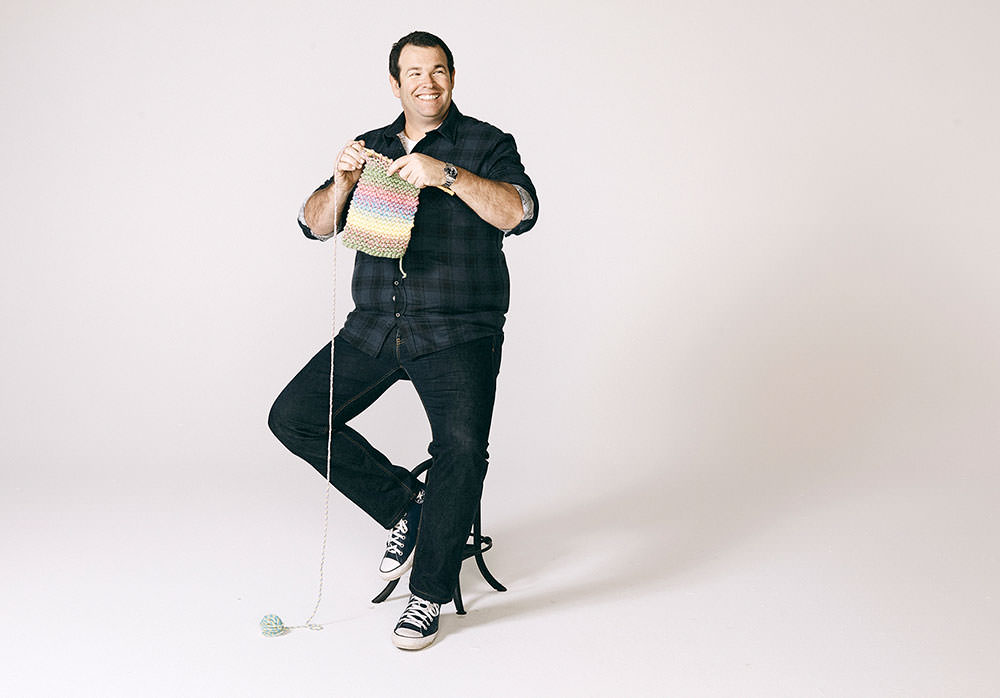Gus Worland tackles men’s mental health in Man Up
Triple M’s Gus Worland, gonzo journalism and making Australian men Man Up by digging deep.
 Gus Worland
Gus Worland
There is no distinction between the way parents treat boys and girls as babies. If a baby is crying, he or she has his or her nappy changed, is fed, or comforted.
But at some stage between then and becoming a teenager, it all seems to go pear-shaped.
“Between being a little kid to being 13 or 14, you’re called all sorts of names and it’s such a negative for a boy to be crying,” says radio presenter Gus Worland.
“We need to change that.”
Worland wants to emphasise the need to change.
Why? Because Australian men face a unique issue – this stereotype of being a stoic, carefree bloke and bottling up your emotions is contributing to 2000 Aussie men taking their own lives every year.
In fact, if you’re a man aged between 15 and 44 years, the leading cause of death is not road accidents, cancer or heart disease.
It’s suicide.
As Worland discovers in the three-part ABC documentary series Man Up, many Australian men think speaking up about their problems is not an option. It’s seen as ‘weak’ or ‘unmanly’ to burden someone else with your feelings.
It’s personal for Worland, whose mate Angus committed suicide in 2006, but also because his son is now a teenager. The mental health of high school boys is the focus of the second episode in particular.
“We would love to offer it to every education department in the country and say look, play this to your year 8, 9 and 10 students and hopefully this might trigger some thoughts in some young men to realise they’re not on their own and they might seek some help,” he says.
Worland is also in a unique position to get the message out – as a popular radio presenter on Triple M.
It’s actually how he got involved with Man Up.
Executive producer Jennifer Cummins of Heiress Films discovered Worland through her two sons, who frequently tuned into Triple M’s The Grill Team, and asked him for a meeting.
“We had a really good chat and she realised how passionate I was and how much I was going to put into it and I was fortunate to get the job,” Worland said.
Cummins was working on a documentary series with Professor Jane Pirkis from the University of Melbourne. Professor Pirkis wanted to try and enact change after the results of a study called Ten to Men found a key risk factor for suicidal thinking in Australian boys and men aged 10 to 55 was ‘self-reliance’. That is: this need to be stoic and to not seek help.
With University of Melbourne and Movember Foundation providing funding support, and Heiress Films on board as well as Worland, Man Up was made in association with ABC, but has become much more than a documentary. It’s a movement.
Consumer Psychologist Adam Ferrier was brought on board (he appears in Episode 3) to help develop the #ABCManUp campaign.
It was no easy feat, needing to both appeal to these Australian blokes, but also smash through that macho exterior Australian advertising so often tries to appeal to.
“It’s really hard to appeal to a stereotype with a new message and then break that stereotype apart for two reasons,” Ferrier says.
“Firstly, people don’t like change. It’s easier to keep things going the way they are – for the consumer, the person delivering the message and media organisations.
“But also, the budget the documentary has for media is incredibly thin, so even though we might say insightful or impactful in the documentary, there’s lots and lots of messages out that continue to reinforce the stereotype.”
But if anyone is going to break through, it’s Worland.
“It’s incredible that it’s Gus telling this story,” he says.
“It’s kind of a case of gonzo journalism… where the narrator is also the character. And for it to be such a mainstream blokey bloke as Gus going on this sensitive journey of inquiry is incredible.”
Watch Man Up! on Tuesday at 8.30pm on ABC TV and catch up on missed episodes on ABC iview.
If you or anyone you know needs help or support contact Lifeline on 131114, or Beyond Blue on 1300 224 636.